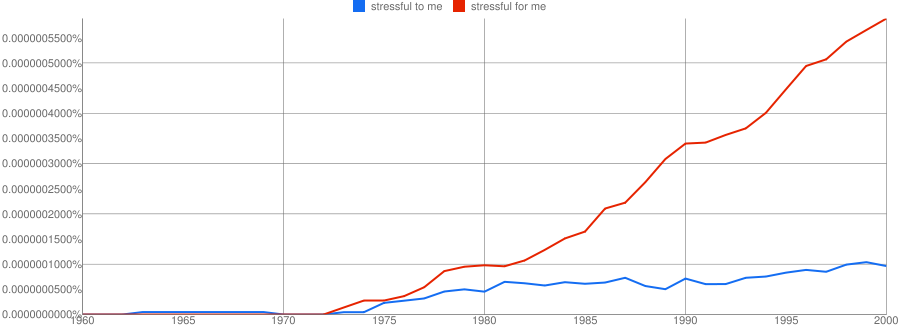"Stressful to" vs. "stressful for"
--------------------------------------------------
Hire the world's top talent on demand or became one of them at Toptal: https://topt.al/25cXVn
and get $2,000 discount on your first invoice
--------------------------------------------------
Music by Eric Matyas
https://www.soundimage.org
Track title: Techno Bleepage Open
--
Chapters
00:00 &Quot;Stressful To&Quot; Vs. &Quot;Stressful For&Quot;
00:16 Accepted Answer Score 5
00:46 Answer 2 Score 0
01:02 Thank you
--
Full question
https://english.stackexchange.com/questi...
--
Content licensed under CC BY-SA
https://meta.stackexchange.com/help/lice...
--
Tags
#wordchoice #grammaticality #prepositions #tofor
#avk47
Hire the world's top talent on demand or became one of them at Toptal: https://topt.al/25cXVn
and get $2,000 discount on your first invoice
--------------------------------------------------
Music by Eric Matyas
https://www.soundimage.org
Track title: Techno Bleepage Open
--
Chapters
00:00 &Quot;Stressful To&Quot; Vs. &Quot;Stressful For&Quot;
00:16 Accepted Answer Score 5
00:46 Answer 2 Score 0
01:02 Thank you
--
Full question
https://english.stackexchange.com/questi...
--
Content licensed under CC BY-SA
https://meta.stackexchange.com/help/lice...
--
Tags
#wordchoice #grammaticality #prepositions #tofor
#avk47
ACCEPTED ANSWER
Score 5
The preposition for introduces the person who feels stressful, regardless of the verb form used:
Working is stressful for some.
It is stressful for some to work.
You can omit the subject of the stress:
It is stressful to work.
NGrams shows that to is also used but for is the preferred preposition. It also shows that stress was popularised in the late 20th century.

ANSWER 2
Score 0
It is less stressful ( for / to ) a child than an adult to learn a foreign language.
"For" is the right choice, but it would be even better as:
It is less stressful for a child to learn a foreign language than for an adult.